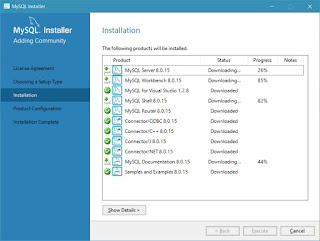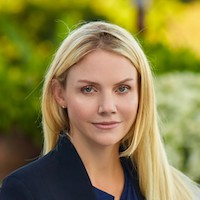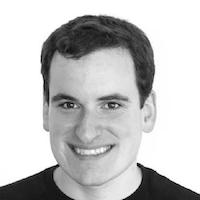In this course, I will learn how to program in R and how to use R for effective data analysis. I will learn how to install and configure software necessary for a statistical programming environment and describe generic programming language concepts as they are implemented in a high-level statistical language. The course covers practical issues in statistical computing which includes programming in R, reading data into R, accessing R packages, writing R functions, debugging, profiling R code, and organizing and commenting R code. Topics in statistical data analysis will provide working examples.
In February of 2018, I was denied admission to a Ph.D. program in Linguistics. As I was navigating the application process, I simultaneously revisited a dormant interest in computer science. In March I enrolled in a certified Computer Science class via HarvardX, which I completed four months later. I am at the beginning of a new phase in my life-long learning process and look forward to that which the future will inevitably deliver.
Sunday, July 29, 2018
R Programming by Johns Hopkins University
I am about to begin R Programming from Johns-Hopkins by way of Coursera! This is course 2 of 10 that I am working through on my way to becoming a Data Scientist.
In this course, I will learn how to program in R and how to use R for effective data analysis. I will learn how to install and configure software necessary for a statistical programming environment and describe generic programming language concepts as they are implemented in a high-level statistical language. The course covers practical issues in statistical computing which includes programming in R, reading data into R, accessing R packages, writing R functions, debugging, profiling R code, and organizing and commenting R code. Topics in statistical data analysis will provide working examples.
In this course, I will learn how to program in R and how to use R for effective data analysis. I will learn how to install and configure software necessary for a statistical programming environment and describe generic programming language concepts as they are implemented in a high-level statistical language. The course covers practical issues in statistical computing which includes programming in R, reading data into R, accessing R packages, writing R functions, debugging, profiling R code, and organizing and commenting R code. Topics in statistical data analysis will provide working examples.
Sunflow Data Science & Analytics
My name is Austin Craver and I am a budding Data Scientist.
I just launched www.SunflowData.com to act as a repository for my progress and work.
It is called Sunflow Data.
Discovering new ways to take raw data and turn it into meaningful results. We strive to continually ensure that the analysis is relevant, and we are committed to providing clean, in-depth datasets.
I just launched www.SunflowData.com to act as a repository for my progress and work.
It is called Sunflow Data.
Discovering new ways to take raw data and turn it into meaningful results. We strive to continually ensure that the analysis is relevant, and we are committed to providing clean, in-depth datasets.
Tuesday, July 24, 2018
Friday, July 20, 2018
Types of Neural Networks
I stumbled upon this via Twitter, and I'm leaving it here for future reference.
Source: Dr. Kirk D Borne
Sunday, July 15, 2018
Data Science Specialization = My New Focus
I am focusing entirely on Data Science for the next year. I really liked studying HTML5, CSS, JavaScript, jQuery, SQL, C, and more, but alas I must focus. I must focus on one thing and learn to do it well. That thing is Data Science.
I recently received a scholarship that covered the $50.00 required to take The Data Scientist's Toolbox from Coursera via Johns Hopkins, for which I am truly grateful. However, it was just an intro to the comprehensive specialization and I finished what was presented as a four-week course in two sittings. I am trying to accept that it will all be a joyful uphill journey from here and just have fun with the process as a whole. Never before have I so thoroughly enjoyed the learning process.
The following excerpt is from a free lesson via DataCamp:
I recently received a scholarship that covered the $50.00 required to take The Data Scientist's Toolbox from Coursera via Johns Hopkins, for which I am truly grateful. However, it was just an intro to the comprehensive specialization and I finished what was presented as a four-week course in two sittings. I am trying to accept that it will all be a joyful uphill journey from here and just have fun with the process as a whole. Never before have I so thoroughly enjoyed the learning process.
The following excerpt is from a free lesson via DataCamp:
Wednesday, July 4, 2018
At a minimum, a data scientist should...
I wish I could remember where I copied and pasted this from, but alas, I cannot. Just the same, here's a great overview of what a data scientist would benefit from understanding.
At a minimum, a data scientist needs to be proficient with concepts such as probability, correlation, variables, distributions, regression, null hypothesis significance tests, confidence intervals, t-test, ANOVA, and chi-square. At an advanced stage, data scientists need concepts and algorithms such as logistic regression, support vector machines (SVMs) and Bayesian methods. Common statistical analysis tools such as Excel, R and SAS are very famous among data scientists.
At a minimum, a data scientist needs to be proficient with concepts such as probability, correlation, variables, distributions, regression, null hypothesis significance tests, confidence intervals, t-test, ANOVA, and chi-square. At an advanced stage, data scientists need concepts and algorithms such as logistic regression, support vector machines (SVMs) and Bayesian methods. Common statistical analysis tools such as Excel, R and SAS are very famous among data scientists.
Subscribe to:
Posts (Atom)
SQL
I've hit a wall in my SQL studies via the Khan Academy, and as such, I am engaging in additional studies prior to attempting to move for...

-
I've hit a wall in my SQL studies via the Khan Academy, and as such, I am engaging in additional studies prior to attempting to move for...
-
I was reading a great article from Hacker Noon (link at the bottom of the page) and there was a paragraph about a variety of acronyms and p...







